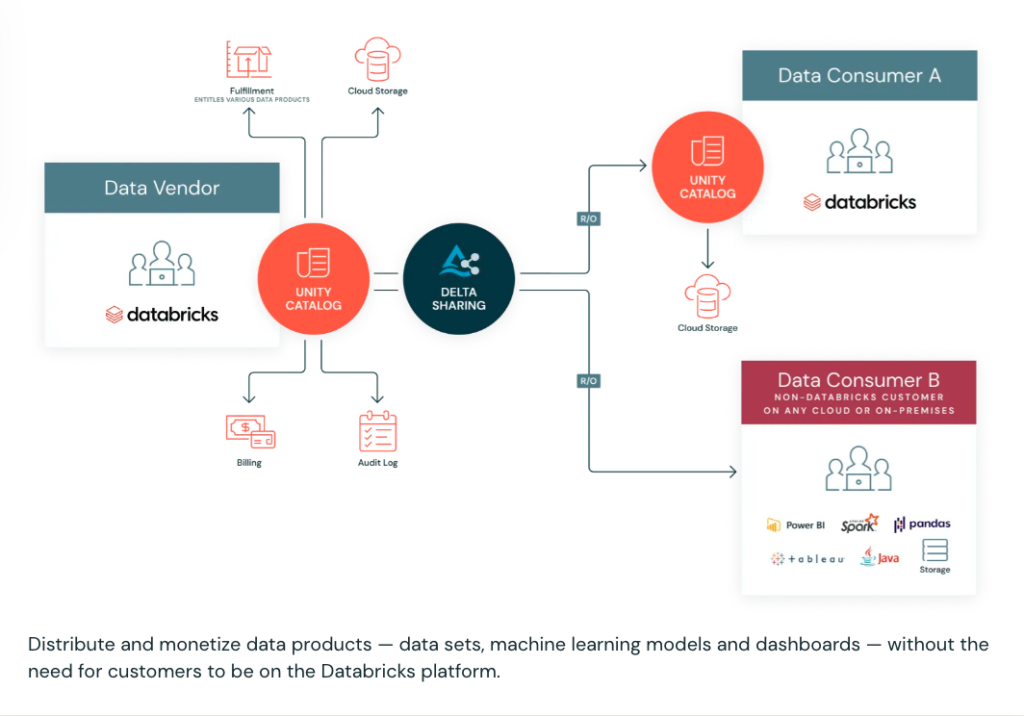Databricks: securing and monetizing data estates

Building the one-stop-shop for buliding, managing, and monetizing data and AI
In an era where data is worth its weight in gold, businesses face a dual challenge: ensuring the security of their valuable data assets while also finding ways to monetize them effectively. Databricks was a company founded in 2013 by a team of researchers from UC Berkeley who developed Apache Spark, an efficient, scalable computing framework built for the Big Data age. Fast forward to 10 years later, Databricks is one of the key companies uniquely positioned to propel companies on its platform into the golden-age of AI.
At its core, Databricks provides a set of services and cloud-agnostic infrastructure built on top of Apache Spark. The services are designed with the data scientist persona in mind and provide a collaborative environment for engineers, scientists, and analysts to work together seamlessly. As a platform facilitating the end-to-end development of data modeling and AI, Databricks has built-in support for a multitude of programming languages and integrations with popular tools and data sources making it a versatile hub for all data-related activities.
Like many successful platforms, developing a hook to bring users in is the first step in a long-term platform play. The value created by the platform starts compounding in a variety of ways once an organization adopts any Databricks. Below are some of the ways Databricks continues to create value post-adoption:
- Unified Data Analytics: Databricks enables users to unify big data and AI on a single platform. It simplifies the process of data ingestion, preparation, and exploration, allowing businesses to derive actionable insights from their data quickly.
- Advanced Security: Security is paramount, and Databricks ensures the confidentiality and integrity of data through advanced encryption, identity management, and access controls. This level of security instills confidence in businesses, encouraging them to entrust their sensitive data to the platform. The new Unity Catalogue offers fine-grained controls down to the record-level.
- Monetization Data: Once datasets and models have been onboarded, Databricks offers the ability for an organization to share datasets and models with other companies or across organizational lines internally (see image below about how Databricks data sharing via Delta Streaming can create new revenue streams for companies).
- Machine Learning Capabilities: Databricks offers machine learning libraries and tools, facilitating the development of predictive models. Businesses can monetize these models by offering data-driven products and services, creating new revenue streams. Databricks recently acquired MosaicML, a platform specialized in fine-tuning LLMs which provides the perfect complement to the existing data estate captured within the Databricks

In terms of Databricks’ long-term sustainability, the firm has built a platform designed to make the most of the new age of AI and Data however some questions remain about their competitiveness as THE platform in the market. For one, incumbent cloud providers may still offer an all-in-one suite on top of the fundamental compute resources making it easy for companies to adopt their full stack (like AWS launching Sagemaker as the perfect complement to their AWS cloud offering). Second, in order for Databricks to win the largest enterprise contracts they must earn the trust of the largest companies in industries ranging from healthcare and finance to retail and manufacturing where there are varying levels of data regulation and bespoke requirements. Finally, the continuous change in the space of AI requires Databricks as an organization to consistently ship products that are ahead of the curve when it comes to available offers on the market.
While the challenges are clear, Databricks has a strong position in the market today powered by its vast user base and active developer community. The benefits of this include resources, conferences, tutorials, and forums that overall enhance the experience of the platform ensuring long-term sustainability.


